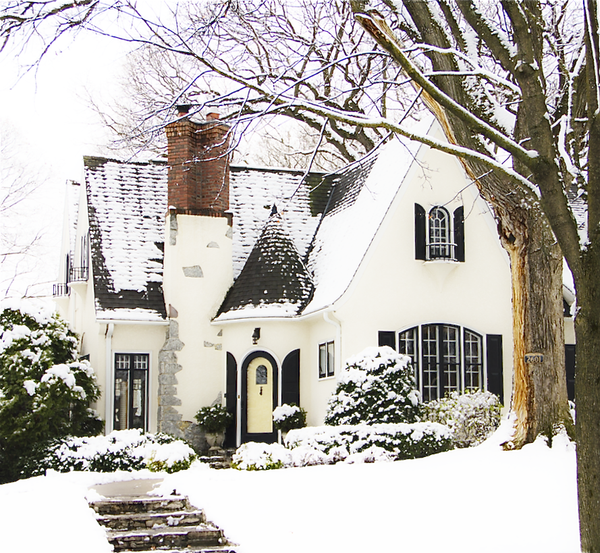Selling a retirement home can prove to be a demanding undertaking. The task of identifying a suitable purchaser and placing your property on the market comes with a variety of obstacles that might create the impression that the sale is an insurmountable challenge.
Nonetheless, by exercising patience and employing effective strategies, it is entirely feasible to accomplish a successful sale of your property. This accomplishment can enable you to transition into a new phase of life or acquire additional resources for the times ahead.
The complexities associated with why is it hard to sell a retirement home stem from a few key factors. Let's delve into these intricacies.
What Is A Retirement Home?
A retirement home, also known as an assisted living or independent living establishment, provides a living environment for senior citizens where their individual requirements are catered to. These facilities generally provide an array of services and conveniences to enhance the residents' overall welfare and satisfaction.
Another variation of a retirement home is a detached residence situated within a 55+ community. The challenge of selling a residence in such a retirement community arises due to the extremely restricted pool of potential buyers for these properties. This specific kind of retirement home will be the focus of the subsequent sections of this blog post.
Why is it Hard to Sell a Retirement Home?
The process of selling a retirement home can pose challenges due to the following factors:
1. Challenging Market:
Selling a residence in a retirement community can be intricate due to the specific target audience. Depending on the demographics in your region, there might be a prevalence of young families seeking their initial homes. Conversely, homes located in independent living communities situated in popular retirement destinations like Florida or Nevada tend to have a swifter sales pace.
2. Intense Competition:
One of the most formidable hurdles is the level of competition in the realm of selling homes within retirement living communities. The steady increase in the retired population has led to a surge in the construction of retirement homes. Consequently, these newly built properties hold greater appeal for recent retirees aiming to settle in for the long term. Given the uniformity of homes in these communities, newer options tend to garner more interest.
3. Imposed Restrictions:
The presence of community regulations can deter potential buyers. Certain communities might prohibit the display of 'For Sale' signs on lawns. Additionally, homeowners associations (HOAs) could impose extra fees for access to amenities or enforce an age requirement of fifty-five or older for residents. It is vital to have a clear understanding of your community's guidelines before listing your home for sale. This ensures you can navigate these challenges and identify a suitable purchaser.
Retirement Home Market:
Several elements, encompassing the state of the real estate landscape, can significantly impact the decision-making process regarding the sale of a retirement home. In times of a robust housing market, characterized by substantial demand for homes, an opportune window emerges for retirees to market their homes.
This environment often leads to buyers willing to offer a premium and engage in competitive bidding, thereby favorably influencing sellers. Conversely, during periods of housing market weakness, certain difficulties may arise for those contemplating the sale of their retirement properties.
In scenarios marked by a scarcity of potential buyers and heightened rivalry among sellers, adjusting the selling price or exercising patience until market conditions become more favorable might become imperative. Retirees are advised to vigilantly monitor housing market trends and devise strategies in harmony with these dynamics to optimize the sale of their homes.
Why Do You Need To Sell a Retirement Home?
Selling your house upon entering your new retirement phase requires some effort, yet the endeavor holds value if you find yourself fitting into one or more of the subsequent scenarios:
1. Seeking a Lump Sum of Funds
For some older individuals, entering retirement without an ample safety net for unforeseen expenses is a reality. In such cases, selling your retirement property after accumulating equity can result in a substantial financial injection. It's important to note that achieving a profitable sale hinges on the convergence of two critical factors: equity and the prevailing state of the local real estate market.
If these factors harmonize, you stand to reap significant gains. Conversely, in a struggling market, the benefits might be mitigated, as a large mortgage could consume a considerable portion of the proceeds, or the market's downturn could dampen your selling price.
2. Alleviating Homeownership Costs
Homeownership entails ongoing expenses such as maintenance, repairs, and property taxes. On the contrary, renting often involves a fixed rate imposed by landlords, which generally proves more cost-effective over time. Thus, if the cycle of continuous repairs has become taxing, divesting of your property can liberate your budget from these financial burdens.
This enables you to transition into a rental unit or cohabitate with family, sparing you the array of responsibilities associated with property ownership.
3. Embracing Downsizing
Downsizing manifests diversely based on individual circumstances. You may be inclined to relinquish a burdensome mortgage and procure a more affordable dwelling. Conversely, a desire for a smaller living space might necessitate parting with some belongings.
In either scenario, streamlining your life can alleviate stress and trim monthly expenditures. The act of downsizing can thus optimize your temporal and fiscal freedom throughout your retirement journey.
Conclusion:
Dealing with the complexities of why is it hard to sell a retirement home might seem discouraging, but there's no need to lose heart. By adopting strategic approaches, setting the right price, and engaging in skilled negotiation, you can effectively pinpoint the ideal buyer for your property.
Understanding how the housing market impacts your selling prospects, considering your home's age and any essential renovations, and enhancing its appeal by highlighting key attributes are all vital factors.
Engaging in comprehensive market research, enlisting the support of an adept real estate professional like EasyDigz, readying your home for sale, and executing an effective marketing strategy are essential steps in attracting potential buyers.
Through meticulous planning and adept execution, you can adeptly navigate the intricacies of selling a retirement home and attain your envisioned outcome.








